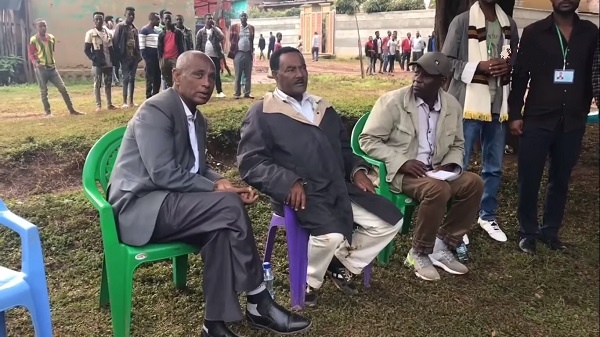
HAWASSA (AFP) – Election officials in Ethiopia’s ethnic Sidama region counted votes on Thursday, 21 November 2019, from a referendum that many expect will approve the creation of a new federal state.
The vote, completed on Wednesday, is seen as a critical test in a nation already struggling with community tensions.
Analysts say it could inspire other groups to push for autonomy and redraw boundaries in Ethiopia, Africa’s second most populous country with more than 100 million people.
If approved, the new state would be largely based on ethnic divisions, handing tax-raising powers and control over schools, police, health and other services to the Sidamas, who would be in the majority in the state.
“The voting process ended completely peacefully with no security incidents reported to us or the security forces,” said Soliyana Shimelis, spokeswoman for the National Electoral Board of Ethiopia (NEBE).
Results are expected to be announced late on Thursday or on Friday, Soliyana said.
With apparently overwhelming support among Sidamas to form their own state, excitement is high on the streets of the regional capital Hawassa, roughly 200 kilometers (125 miles) south of Addis Ababa.
But there is also concern among non-Sidama people in the would-be state, especially in Hawassa, for whom the city is home.
The Sidama push for autonomy triggered days of unrest in July that left dozens dead and prompted the government to place Ethiopia’s southern region under the control of soldiers and federal police.
The referendum on autonomy springs from a federal system designed to provide widespread ethnic self-rule in a hugely diverse country.
At present, Ethiopia is partitioned into nine semi-autonomous regional states — with the Sidama voting for a potential tenth.
The constitution requires the government to organize a referendum for any ethnic group that wants to form a new entity.
Not ‘created overnight’
The Sidama — who number more than three million — have agitated for years to leave the diverse Southern Nations, Nationalities, and Peoples’ Region.
The dream gained fresh momentum after Prime Minister Abiy Ahmed, winner of this year’s Nobel Peace Prize, took office last year.
The city of Hawassa is ethnically diverse — only about half the population is Sidama — and up to now has served as the administrative center for the entire southern region.
In the short term, tensions may be defused by a recent agreement that will allow the regional government to stay in the city for two five-year election terms.
“Celebrations may well be due, but a new region will not be created overnight — this is just one key part of a process,” said William Davison from the International Crisis Group.
“And during no part of that process should Sidama statehood harm non-Sidama residents or businesses.”
With more than 10 other ethnic groups potentially keen to hold their own referendum on autonomy, the Sidama referendum is being watched closely across Ethiopia.
The “key question now is how Wolayta, Hadiya, Gurage, Keffa and other zones seeking statehood referendums will react”, Davison added.
Source: FRANCE 24
